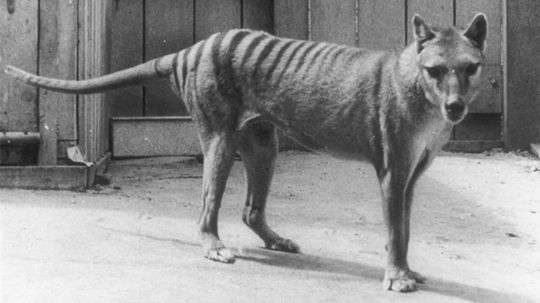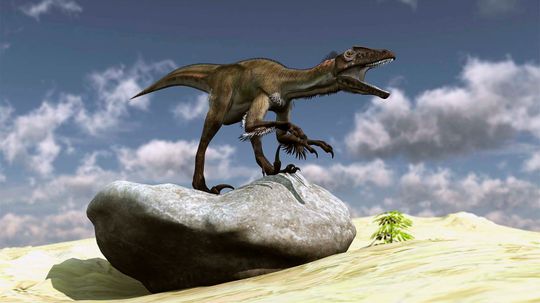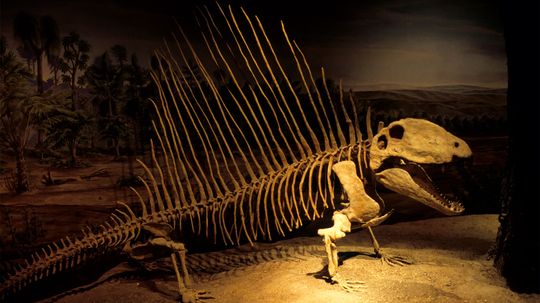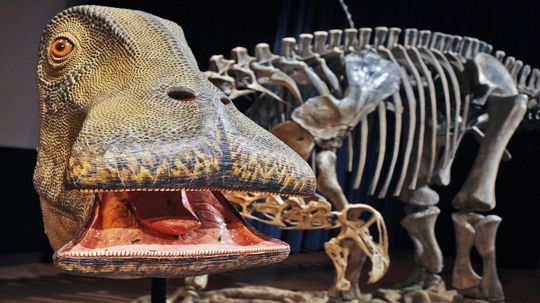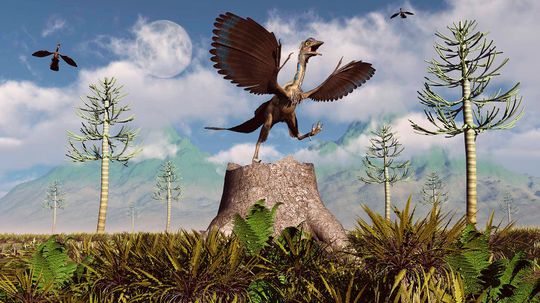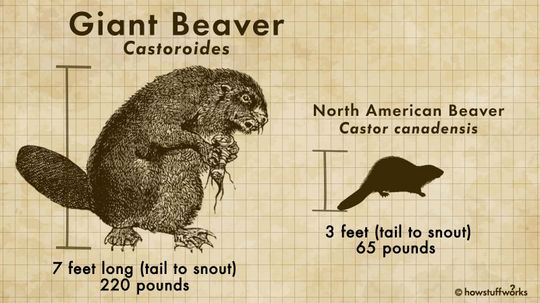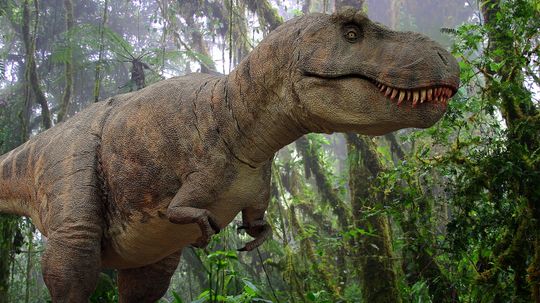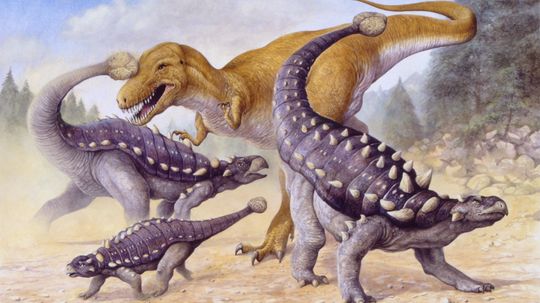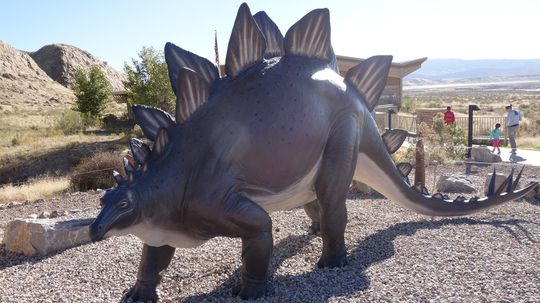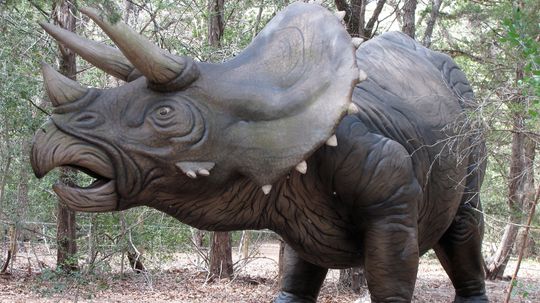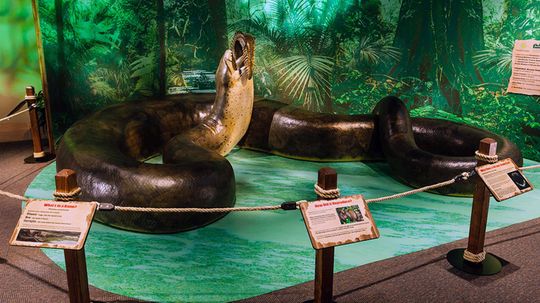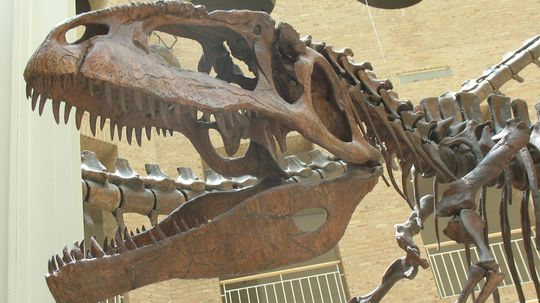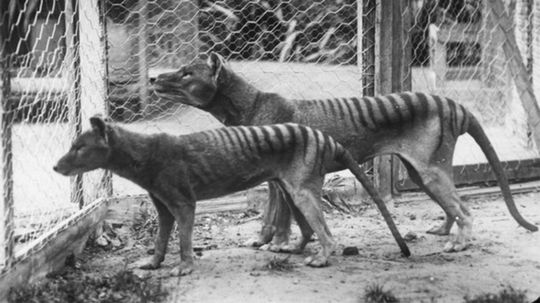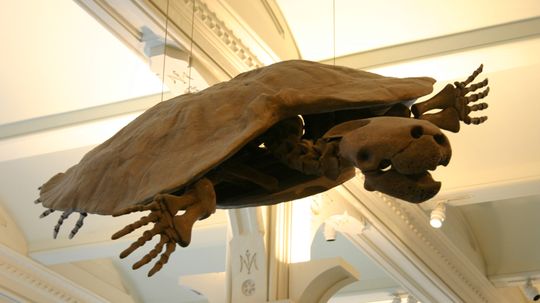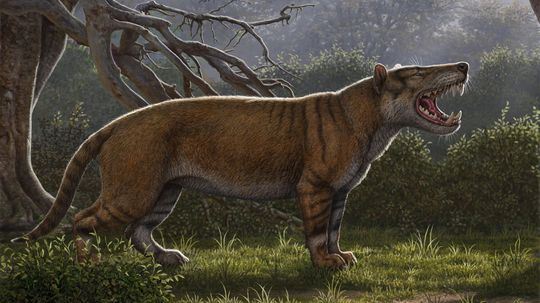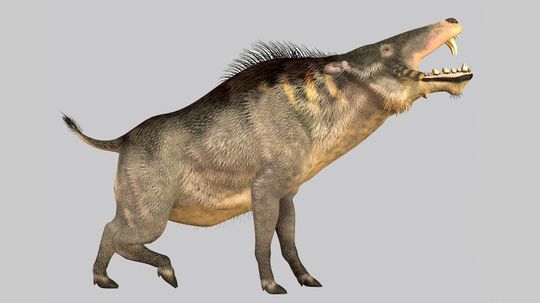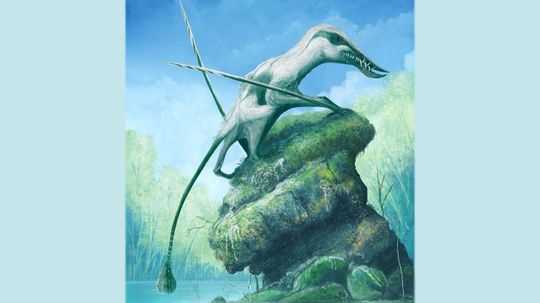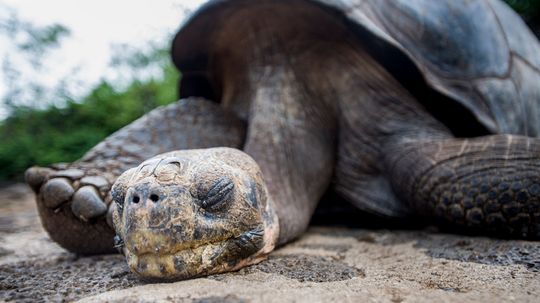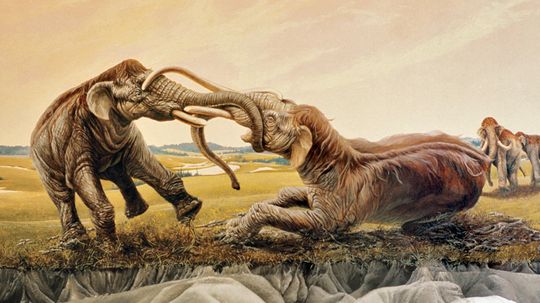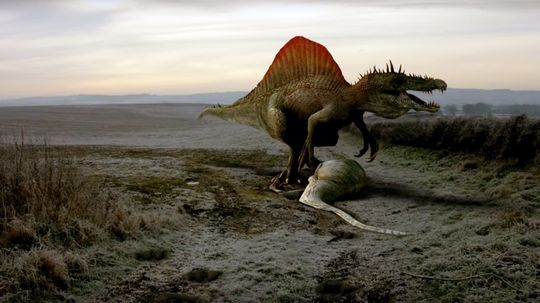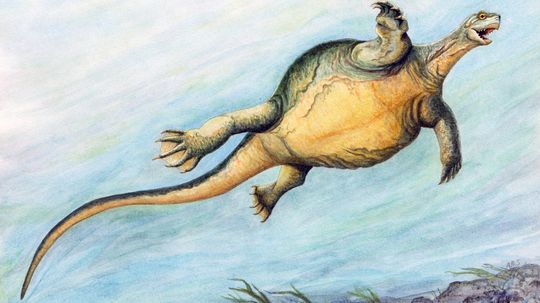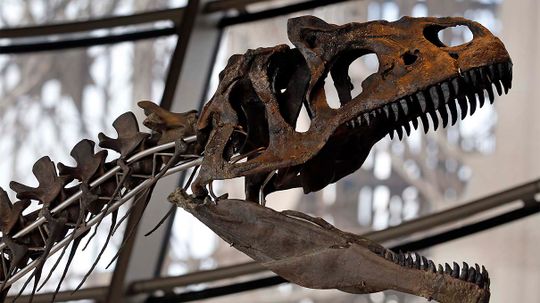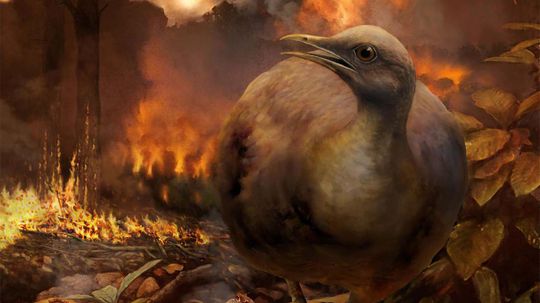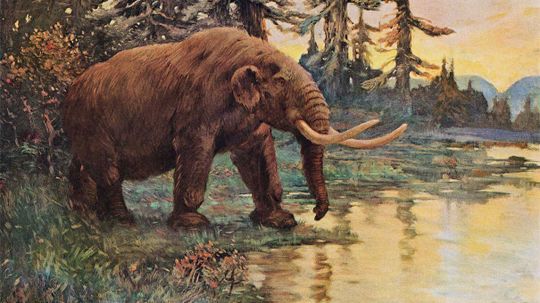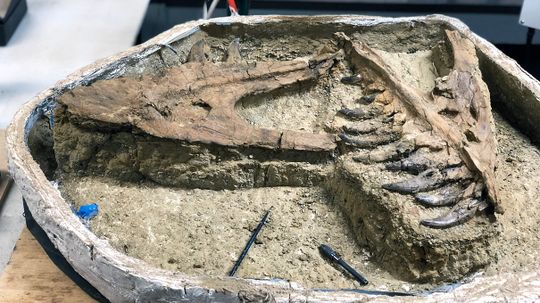Extinct Animals
Extinct animals are those species which are no longer living. This group includes prehistoric animals like dinosaurs and ice-age mammals, as well as moden species like the Dodo.
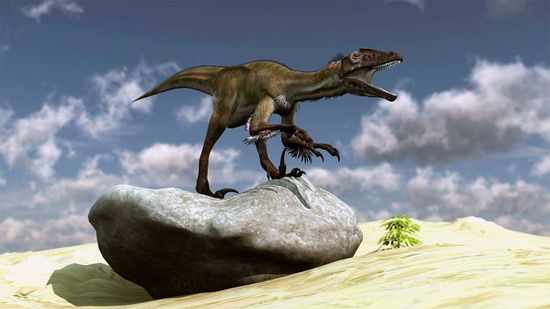
Utahraptor: The Salty Saga of a Killer Dinosaur
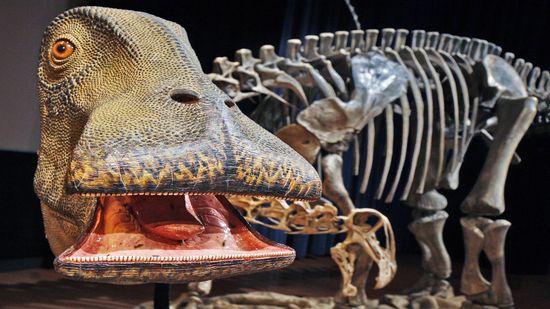
Nigersaurus: The 'Mesozoic Cow' With More Than 500 Teeth
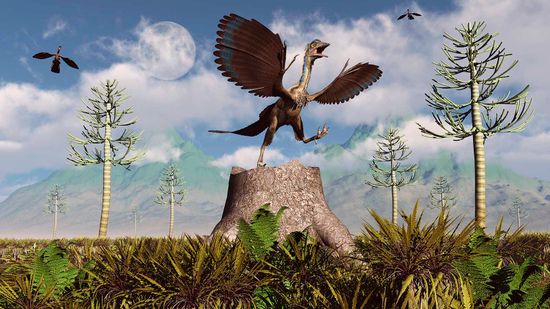
Meet Archaeopteryx, a Feathered Dino With Wings and Teeth
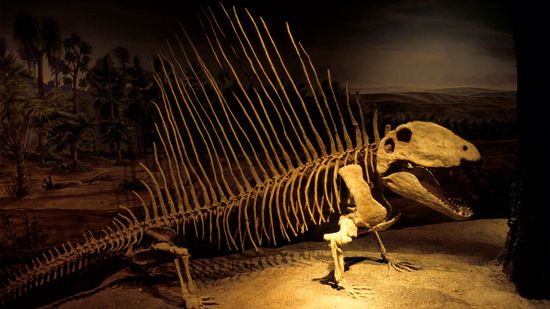
Think Dimetrodon Was a Dinosaur? Think Again
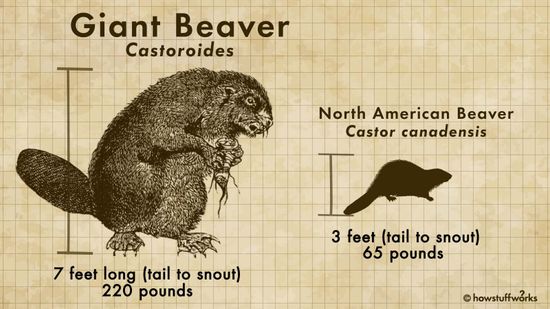
The Now-extinct Castoroides Was a Bear-sized Beaver
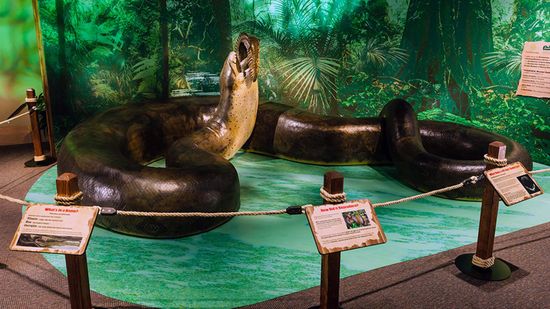
The Massive Titanoboa Snake Once Ruled the Colombian Rainforest
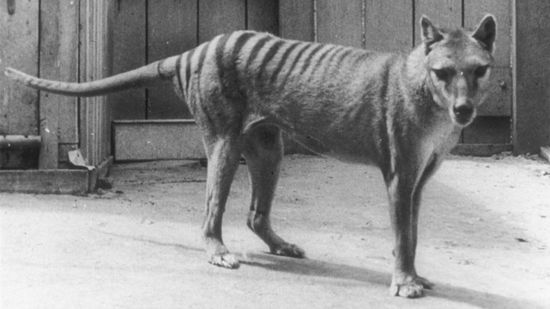
Real Life 'Jurassic Park'? Scientists Work to Bring Back Extinct Thylacine
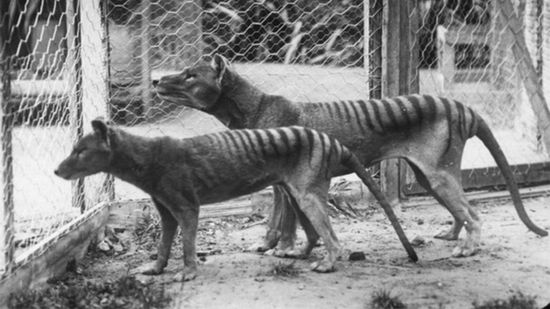
Once Thought Extinct, the Tasmanian Tiger May Still Be Prowling the Planet
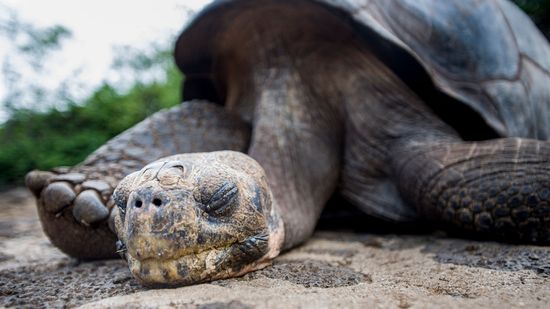
Lonesome George Lived to Be 100 Years Old. Genome Sequencing Is Figuring Out How
Learn More
Bringing a species back from extinction might not be the stuff of sci-fi any longer.
Utahraptors lived around 135 million years ago in the late Cretaceous Period. So what does salt have to do with these massive dinosaurs whose fossils were first discovered in 1975?
Dimetrodon may look for all the world like a dinosaur, but was actually closer, evolutionarily speaking, to humans. Scientists are still trying to figure what their magnificent sails were used for.
Advertisement
Known by the nickname "Mesozoic Cow," the African dinosaur Nigersaurus taqueti has also had its face compared to a vacuum cleaner.
Fossils of just 12 individual Archaeopteryx, a winged dinosaur that live during the Jurassic, have ever been found. Aside from the rarity, what else makes this unique dinosaur so special?
The giant castoroides thrived in the Great Plains, the Great Lakes region, the American South and Alaska. So why did this massive beaver die out?
Tyrannosaurus rex, one of the fiercest meat-eaters ever, is the animal that probably springs to mind when most of us hear the word "dinosaur."
Advertisement
Ankylosaurus was a dinosaur with short, squat legs that allowed it to run at about 6 miles per hour â fast, but not fast enough to outrun a large carnivorous predator like Tyrannosaurus rex.
Stegosaurus, an herbivorous dinosaur from 149 million years ago, walked on four legs, had a long, beak-tipped skull, a row of spikes adorning its tail and a pea-sized brain.
Triceratops â which literally means "three-horned face" â is one of the most spectacular and well-known of all dinosaurs. It shared the Cretaceous landscape with, and probably was preyed upon by, Tyrannosaurus rex.
The extinct Titanoboa snake lived around 66 million to 56 million years ago. These things were massive and could reach 50 feet long and 3 feet wide making them the largest snake ever to have roamed the Earth.
Advertisement
Constantly compared to the Tyrannosaurus rex, the Giganotosaurus was one of a handful of dinosaurs that rivaled, or possibly exceeded, the creature in size.
On Sept. 7, 1936, Benjamin, the last known Tasmanian tiger, died in captivity at the Hobart Zoo in Tasmania, Australia. But there are those who believe this extinct species still walks the Earth.
Back in the day, the soupy pre-Amazonian waters were filled with beasts like Stupendemys geographicus, a giant turtle the size of a sensible sedan.
The fossilized remains of Simbakubwa kutokaafrika, which means "big lion from Africa," were discovered not once, but twice.
Advertisement
这些super-frightening entelodonts地狱(又名猪) once patrolled throughout Eurasia, North America and Africa.
Mid-Jurassic England was teeming with flighted creatures. Now we know it included one pterosaur called Klobiodon rochei.
Lonesome George, the last of his species of tortoises, died in the Galapagos in 2012. But scientists have now finished analyzing his DNA and found some fascinating clues about giant tortoise longevity.
The battle clearly ended in a slow death for both massive male beasts.
Advertisement
The villainous dinosaur from 'Jurassic Park' probably never had an affinity for water.
A 220 million-year-old turtle fossil discovered in China is the first of its kind ever to be found.
Someone just paid $2.36 million to take home an exquisite dinosaur skeleton. The sale has added to the growing scientific anxiety about the commodification of precious, irreplaceable fossils.
New research suggests the asteroid impact that killed the dinosaurs probably burned Earth's forests, requiring modern birds' common ancestors to live on the ground.
Advertisement
肯塔基州在巨大的乳齿象在低last ice age. Jefferson was so fascinated by the creatures he was convinced they still roamed the plains in the 1800s.
University of Kansas paleontologists are comparing the bones of a new T. rex to determine if they've got a juvenile Tyrannosaurus or a mature Nanotyrannus on their hands.
